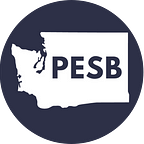PESB Commitments to Educational Justice
Yesterday, the United States Supreme Court rolled back a half-century of progress by striking down Affirmative Action. Enacted in the 1960s, the targeted policies ensured access to educational opportunities for all. The decision by the court to take a “colorblindness for all” approach to college admissions is, frankly, disheartening. Access to post-secondary education is critical to becoming a certificated educator. However, heavy hearts do not deter our Boards from expanding access to the education profession for all Washingtonians.
The Professional Educator Standards Board and Paraeducator Board will continue to advance initiatives that support Washington educators and the profession. Although we will have to wait to see how this ruling will translate into specific changes, we will not waiver in ensuring that access to the profession is available for all those wishing to seek this path. We remain steadfast in pursuit of the core philosophy that Washington educators should reflect Washington students. Representation matters.
PESB Commitments in Action
- Four-year teaching degrees are available at Washington community colleges, providing pathways with open-access admissions. These pathways are often in locations that provide solutions to geographical barriers that existed prior to these institutional offerings.
- Our assessment policy allows for multiple measures to validate educators’ content knowledge, minimizing reliance on high-stakes, standardized testing. We are currently developing a paraeducator assessment that will be offered in multiple languages at no cost to paraeducators or districts.
- When creating a detailed biennial educator shortage report, our state will continue to examine data points on shortages pertaining to demographic representation as well as by role, content, and geographic location. The next biennial report will be available in the near future.
- Recruiting Washington Teachers and the Bilingual Educator Initiative are high school teacher academy programs, founded in equity pedagogy, that help students explore cultural identity and educational opportunities through the lens of the teaching profession. Five new sites will be cultivated in parts of the state where they do not yet exist, including rural and remote locations.
- Teacher residencies provide access to the profession for urban and suburban, as well as rural and remote, communities and school districts. Unlike traditional student teaching, residencies offer a paid clinical experience so that residents with families and other obligations can be prepared to teach without making a financial sacrifice.
- Our cultural competency, diversity, equity, and inclusion standards, adopted in 2022, reflect the importance of recognizing and honoring human differences. They represent the shared values of policymakers and practicing educators who aim to close educational opportunity gaps and elevate education as a profession.
Justice Kentanji Brown Jackson said in her dissent to yesterday’s ruling, “Deeming race irrelevant in law does not make it so in life.” Our Boards understand that, and PESB will continue to pursue its vision of “an equity-minded educator workforce that facilitates learning and growth for each and every student.”
